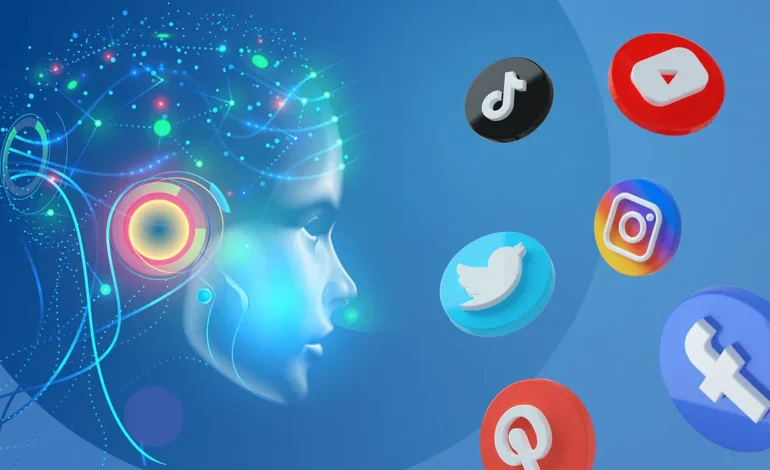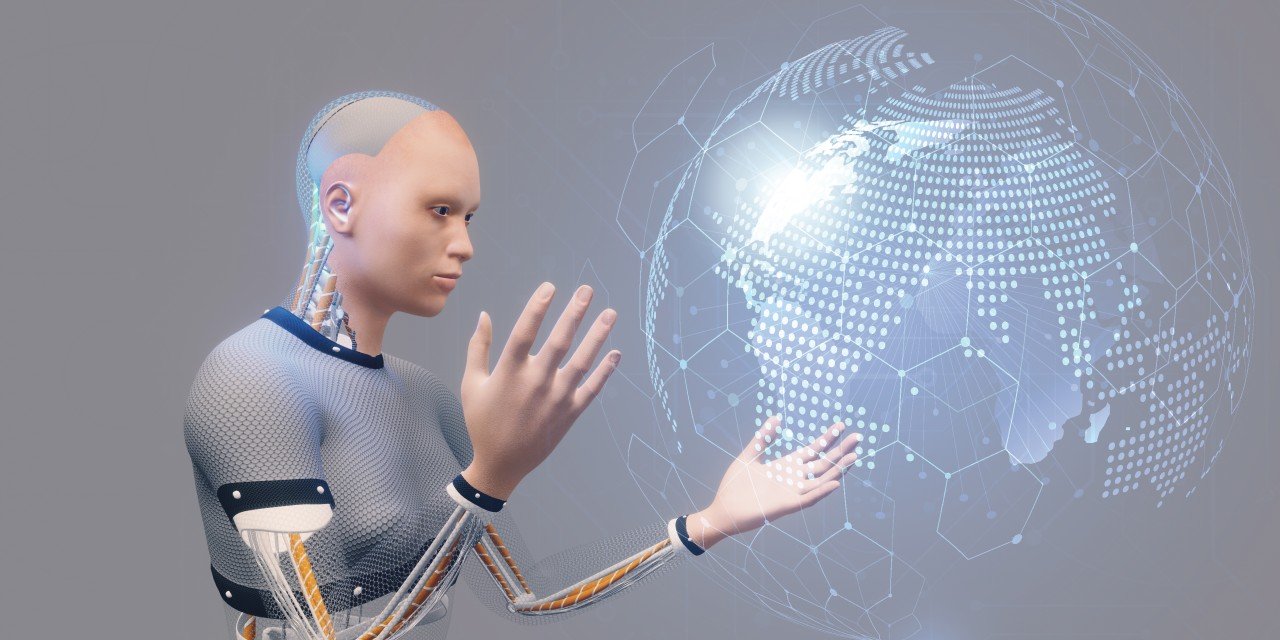What role does artificial intelligence play on social media?

Artificial intelligence (AI) is transforming the way people communicate, interact, and consume content. Its integration into social networks is no longer a novelty, but a reality that opens up several opportunities, but also raises questions about its impact and the responsibilities involved in its use.
In practical terms, AI offers clear benefits: it improves the user experience, optimizes content distribution, and helps companies design more effective marketing strategies. However, this progress is not without challenges. Privacy management, transparency in data management, and the need for responsible moderation are aspects that are now at the centre of the debate.
What role does AI play on social media?
All large digital platforms have incorporated artificial intelligence into their operation to a greater or lesser extent. According to Kaspersky, a cybersecurity company, the power and versatility of this technology have made it an indispensable resource in key functions. A concrete example is Instagram and Facebook, which employ artificial intelligence-based algorithms to organize the content of biographies and news sections, prioritizing what, based on the data collected and analyzed, is more relevant to each user.
Kaspersky also clarifies that this process explains why two people who follow the same accounts can see different content in their feeds. Personalization depends on factors such as the type of publications that each user comments, saves, or shares, as well as the frequency and time at which they interact with them.
In that sense, the company highlights that the frequent question about whether social media algorithms are artificial intelligence is well formulated. Many of the systems that manage what each person sees work thanks to AI, whose central purpose, according to Kaspersky’s analysis, is to perfect the digital experience and adjust it to individual interests.
How is artificial intelligence used on social media?
While artificial intelligence offers benefits to the common user, its impact is even more evident in the business environment. Brands and content creators find in this technology a tool to optimize their presence on social networks, strengthen the relationship with their audiences, and make their processes more efficient.
According to Kaspersky, AI simplifies tasks that were previously done manually, saves time, and helps organizations offer more personalized experiences. It also facilitates more precise monitoring of the brand’s digital reputation.
The cybersecurity company identifies several ways in which artificial intelligence enhances business management on social media:
- Advertising management: AI-driven tools facilitate audience segmentation, ensuring that ads reach the right audience and increasing the return on advertising investment.
- Data analysis: the ability to process large volumes of information in seconds allows AI to identify behavioral patterns, evaluate the performance of publications and ads, and contribute to the design of more specific campaigns.
- Automation of publications: thanks to intelligent programming, companies can make sure that their content is published at the time of greatest activity of their followers, which increases interaction.
- Content moderation: AI-based systems help filter feedback and input from users in brand public spaces, automatically blocking inappropriate messages or violating community rules.
- Content generation: Generative AI offers the possibility to create publications, suggest hashtags to increase visibility, and even support the writing of vacancy descriptions on professional platforms such as LinkedIn.
- Selection of influencers: with the wide range of content creators, the AI allows you to identify those profiles that best fit the values and objectives of the brand, optimizing advertising collaborations.
- Social Listen: By monitoring mentions and online conversations, companies can more accurately learn about their brand’s public perception and anticipate potential reputational crises.
- Customer service: Artificial intelligence chatbots offer automated support and are available 24/7, facilitating constant communication with users through social platforms.
Kaspersky warns that the use of artificial intelligence on social media involves both benefits and risks. Among them are:
Advantages
The benefits of artificial intelligence are not limited solely to the operational efficiency of companies; their impact reaches different levels of digital interaction:
- Safer and more inclusive spaces: AI filters inappropriate content and punishes conduct that violates community standards, favoring more balanced online environments.
- Time saving: automation of tasks such as publication programming or customer service management frees creators and repetitive processes for brands.
- Driven creativity: AI tools help generate ideas, design more attractive campaigns, and explore new communication formats.
- Greater reach for small businesses: it makes it easier for emerging businesses and independent creators to increase their visibility and compete on an equal footing with more consolidated players.
- Cost reduction: By decreasing the manual workload in social media management, resources are optimized.
- Better business decisions: the ability to generate and analyze large volumes of data allows for more precise strategies to be developed.
- Income growth: AI identifies the most effective language and visual resources, suggests new audiences, and directs advertising to more responsive audiences.
- Increased security for users: By detecting attempts at data theft, identity surrogacy, or phishing fraud, it contributes to a more reliable experience.
Disadvantages
Beyond its advantages, artificial intelligence on social networks carries risks that can affect both users and companies. Some come from the way organizations apply technology; others, from limitations inherent to algorithms themselves. Among them are:
- A bias in algorithms: machine learning models can reproduce human bias, affecting the objectivity and quality of results.
- Disinformation dissemination: the speed with which AI generates content can lead to the spread of unverified information, including the proliferation of deepfakes with social and political implications.
- Plague and lack of originality: By collecting information available on the Internet, some AI systems produce content without adequate references or substantial transformations.
- Policy compliance problems: Many companies still lack clear policies on the use of AI, which generates legal risks or ethical conflicts.
- Wrong penalties: Automatic systems can block profiles or publications for alleged breaches of community rules, forcing users to face lengthy and complex appeal processes.










